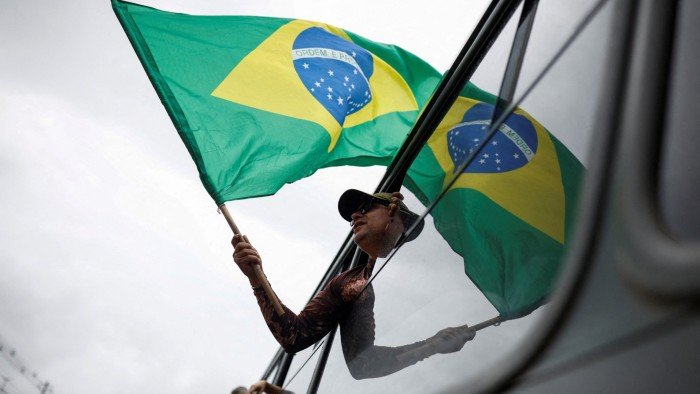Unlock the Editor’s Digest for free
Roula Khalaf, Editor of the FT, selects her favourite stories in this weekly newsletter.
Brazil’s supreme court has ruled that social media platforms can be held legally responsible for users’ posts, in a decision that tightens regulation on technology giants in the country.
Companies such as Facebook, TikTok and X will have to act immediately to remove material such as hate speech, incitement to violence or “anti-democratic acts”, even without a prior judicial takedown order, as a result of the decision in Latin America’s largest nation late on Thursday.
The move follows rising concerns in Brazil about harmful digital content, especially its impact on young people, and will feed the global debate about the boundaries of online free speech. The decision was attacked by critics who warned it could lead to pre-emptive censorship by tech groups.
It also risks fuelling tensions with the US administration of President Donald Trump, which has threatened visa restrictions for foreign nationals found to be censoring American companies and citizens.
Secretary of state Marco Rubio last month said Washington was considering sanctions against a Brazilian supreme court judge under the Magnitsky Act, which targets overseas officials over corruption or human rights abuses.
The justice, Alexandre de Moraes, temporarily banned Elon Musk’s social media platform X last year after the billionaire refused to obey court orders to suspend certain accounts.
Brazil’s top court on Thursday paved the way for individuals to be able to sue digital platforms if they bring illegal content to the companies’ attention but it is not deleted.
Under a previous rule, apps and sites were only deemed civilly liable for damages caused by third-party posts when they failed to comply with judicial orders to take down the offending content.
With eight out of 11 judges ruling in favour, the court found this was “no longer sufficient to protect fundamental rights and democracy”.
Conservatives in the South American nation said the judgment, which will be effective once officially published, would have a chilling effect on freedom of speech.
“Congress will have to react,” rightwing lawmaker Coronel Chrisóstomo told local broadcaster Jovem Pan. “We cannot allow censorship”.
There was also a frosty reception from some tech groups.
“We are concerned about the implications of the ruling on speech and the millions of businesses that rely on our apps for growth and job creation in Brazil,” said Meta, the owner of Facebook, Instagram and WhatsApp.
“[It] brings legal uncertainties and will have significant consequences for free expression, innovation and digital economic development, significantly increasing the risk of doing business in Brazil.”
Google said it had already expressed “concerns about changes that could impact freedom of expression and the digital economy”, adding that it was analysing the decision.
Calls have mounted for tougher internet regulation in Brazil following riots in Brasília on January 8 2023, when supporters of far-right former president Jair Bolsonaro stormed government buildings urging a military coup.
Bolsonaro is facing separate charges before the supreme court in connection with an alleged plot to prevent Luiz Inácio Lula da Silva, the current leftwing president, from taking office.
David Nemer, professor of media studies at the University of Virginia, described the ruling as a “landmark decision”.
“It introduces a more responsive system, especially for cases involving hate speech, racism, and incitement to violence — which are not protected by Brazil’s free speech laws,” Nemer said.
“At the same, the court preserved important safeguards for freedom of expression by maintaining judicial oversight in cases involving honour-related crimes, like defamation.”
Additional reporting by Jorge Carrasco in São Paulo

